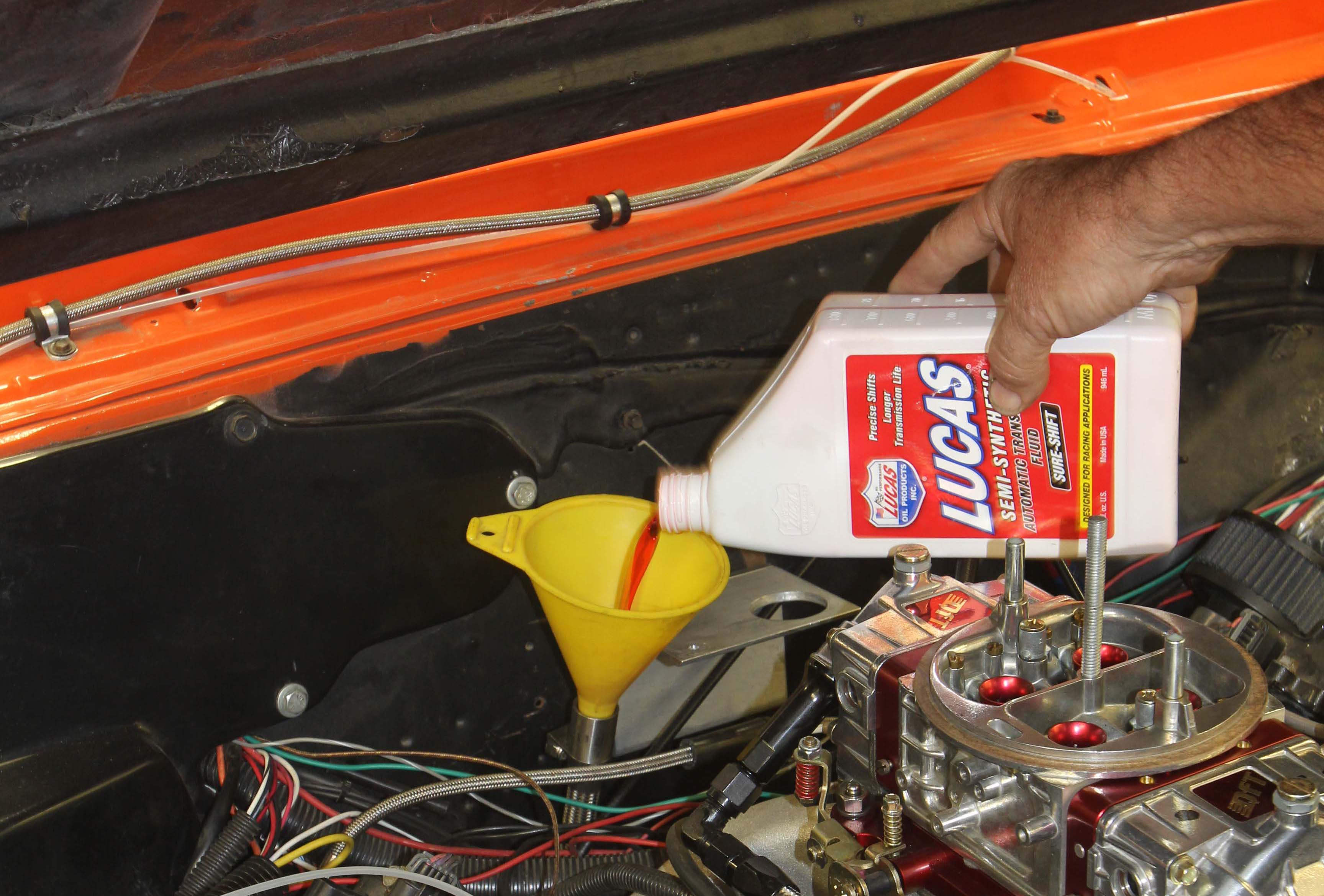Does A Manual Car Need Transmission Fluid

The question seems almost insulting, doesn't it? Ask any seasoned gearhead if a manual transmission needs fluid, and you might get a grease-stained glare in return. But in our ever-evolving automotive landscape, filled with hybrid drivetrains and complex electronic controls, even the seemingly simple manual gearbox deserves a second look. The short answer is yes, absolutely a manual transmission needs fluid. However, the type, frequency, and even the *reason* it needs fluid can vary dramatically depending on the specific car.
Understanding the Basics: It's All About Friction (and Heat!)
At its core, a manual transmission is a mechanical marvel of meshing gears, spinning shafts, and synchronized action. All that metal-on-metal contact generates immense friction and, consequently, heat. Transmission fluid serves several critical purposes:
- Lubrication: Reducing friction between moving parts is paramount. Without proper lubrication, gears would grind against each other, leading to rapid wear and eventual failure.
- Cooling: The fluid absorbs and dissipates heat, preventing overheating and maintaining optimal operating temperatures.
- Cleaning: It carries away debris and contaminants, keeping the internal components clean and functioning smoothly.
- Corrosion Prevention: Certain additives in transmission fluid help protect against rust and corrosion.
Now, let's dive into the nuances.
Not All Fluids Are Created Equal: A Spec Showdown
The specific type of fluid required for your manual transmission is *crucial*. Using the wrong fluid can lead to poor shifting, increased wear, and even catastrophic damage. Here's a comparison of common types:
| Fluid Type | Common Applications | Key Characteristics | Considerations |
|---|---|---|---|
| Gear Oil (GL-4, GL-5) | Older cars, trucks, some performance vehicles | High viscosity, extreme pressure additives (EP) for hypoid gears. | GL-5 can be corrosive to "yellow metals" (brass, bronze) found in older transmissions. GL-4 is often preferred for these. |
| Automatic Transmission Fluid (ATF) | Some modern transmissions, particularly those with electronic controls | Lower viscosity, specific friction modifiers for clutch pack operation (in automatics). | Can provide smoother shifting in some applications, but use *only* if specified by the manufacturer. |
| Synchromesh Fluid | Modern sports cars, performance-oriented applications | Specifically designed for smooth synchro operation, often with friction modifiers. | Typically more expensive than gear oil or ATF. |
| Motor Oil | Very rare, mostly vintage applications | Uses engine oil as a lubricant. | Only use if explicitly specified in the owner's manual. |
Important: Always consult your owner's manual or a trusted mechanic to determine the correct fluid for your specific vehicle. Don't rely on hearsay or "internet wisdom" when it comes to this critical component.
Front-Wheel Drive vs. Rear-Wheel Drive: Different Layouts, Different Needs?
While both FWD and RWD manual transmissions need fluid, their configurations can influence maintenance intervals. In a FWD car, the transmission is often integrated with the differential, meaning the same fluid lubricates both components. This puts more stress on the fluid, potentially requiring more frequent changes.
Driving Impressions: Feel the Difference
The condition of your transmission fluid directly impacts the driving experience. Fresh, clean fluid provides smooth, precise shifts. Old, contaminated fluid can lead to:
- Difficulty shifting: Grinding gears, difficulty engaging gears, or a "notchy" feel.
- Increased noise: Whining or grinding sounds coming from the transmission.
- Reduced fuel economy: Increased friction can put extra strain on the engine.
I recently swapped the fluid in my old Miata, which had been exhibiting some notchy shifts, especially into second gear. The difference was immediately noticeable. The shifting became smoother, more precise, and the overall driving experience was significantly improved. It's a relatively inexpensive maintenance item that can make a huge difference.
Pro and Cons of Regular Transmission Fluid Changes
- Pros:
- Extends transmission life.
- Improves shifting quality.
- Reduces noise and vibration.
- Maintains optimal fuel economy.
- Cons:
- Cost of fluid and labor (if not DIY).
- Potential for leaks if not properly sealed.
- Can sometimes "reveal" existing transmission problems if the old fluid was masking issues.
Hybrid and Electric Vehicles: A New Twist?
While most hybrids and EVs use single-speed transmissions or direct-drive systems, some performance-oriented hybrids *do* feature multi-speed transmissions that require lubrication. Even single-speed gearboxes benefit from proper lubrication to reduce noise and wear. Check your owner's manual to determine the maintenance schedule for your specific hybrid or EV.
Even if there is no conventional transmission fluid reservoir, the gearbox still contains lubricating fluids and the maintenance should be followed. Ignoring this important detail can lead to costly repairs.
Ultimately, ignoring transmission fluid maintenance in a manual car is like ignoring oil changes in your engine. It might seem like a small detail, but it can have significant consequences for the long-term health and performance of your vehicle. So, yes, a manual car definitely needs transmission fluid.
Now for the fun part: Let's hear your opinions! What's the *best* transmission fluid for a high-performance application? Synthetics vs. conventional? Let the debate begin!
